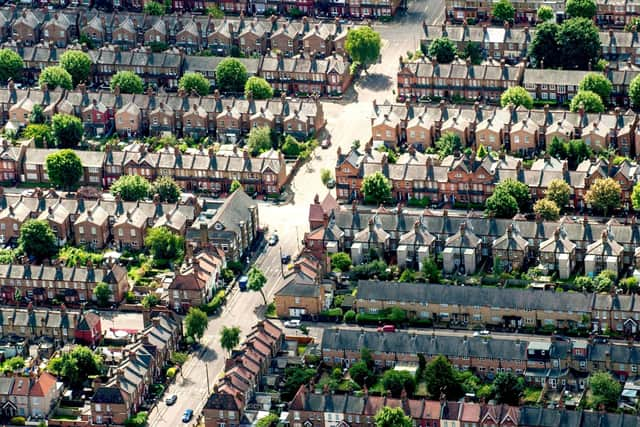Make stamp duty holiday permanent to boost economy – Sara Rainwater
I’ve moved country, done a Masters, got married and given birth to two children, and all that combined was easier than my experience of buying my home four years ago. After three chain collapses and an excruciating seven months, the experience left me feeling rather dejected.
Finally, completion day came and we got the keys. My partner and I had achieved one of our biggest life goals: owning our own home. And, as a thank you, we would face the single largest tax bill we’ve ever had to pay: Stamp Duty Land Tax (SDLT). Over £12,000 of our hard earned cash went straight into the Government’s coffers.
Advertisement
Hide AdAdvertisement
Hide AdOur house is nothing spectacular – a modest 100-year-old end of terrace in need of a lot of love and attention. After we moved in, I couldn’t stop thinking about how the stamp duty money could have gone towards the renovations the house desperately needed (I still think about that on a fairly regular basis even now).


But my disdain for this unfair tax didn’t just start four years ago during my own house-buying experience. I’ve long held the view that stamp duty punishes those who have the temerity to work hard, save up, and buy their own home.
Homeownership can be hugely positive for everyone. As the National Association of Realtors in the US has pointed out: “In addition to tangible financial benefits, homeownership brings substantial social benefits for families, communities, and the country as a whole.” Surely this is something the Government should be actively encouraging at every opportunity? To punish people for doing so, with a whopping tax bill, seems distinctly unfair.
Economists also regularly criticise SDLT for being “inefficient”. This is because it distorts decision making. In a 2017 report, researchers at the London School of Economics called it “a heavy, immediate tax on transactions that contributes to England’s dysfunctional housing market”.
Advertisement
Hide AdAdvertisement
Hide AdAnd researchers at the ESRC Centre for Economic Performance argued that “abolishing stamp duty could increase the mobility of homeowners substantially and put existing housing stock into more efficient use”.


The TaxPayers’ Alliance decided to take on this unfair and inefficient tax in 2013, when we launched our “Stamp Out Stamp Duty” campaign. We quickly gathered momentum and pushed this issue right up the political and media agenda.
We were delighted when, in late 2014, the then Chancellor George Osborne announced major reforms and abolished the slab rate.
However, it was clear that fiddling around the edges hadn’t entirely worked, and we have continually kept up pressure for the abolition of the tax.
Advertisement
Hide AdAdvertisement
Hide AdSo we very much welcomed Chancellor Rishi Sunak’s announcement back in July of a temporary rise in the threshold to £500,000, which is due to end in March of next year. It’s only one step towards the £1m threshold we proposed in 2019, which would ensure only millionaires need pay, but it was a good start nonetheless. Our analysis revealed that raising the threshold to £500,000 could unlock 216,000 house moves, the same as the total housing stock of Manchester.


The tax holiday has seen a huge jump in demand, which has been a great boost to our pandemic-stricken economy. But the rush to complete before the deadline has created major backlogs. Homebuyers are now playing an agonising wait-and-see game.
But hard-working taxpayers shouldn’t be punished because they missed out on the tax holiday by a day or two. That’s why we recently launched a new petition calling on the Government to make the rise in the SDLT threshold to £500,000 a permanent measure.
In these uncertain times we’re spending more and more of our lives at home – what better comfort is there than knowing everything between those walls is a space of your own?
Advertisement
Hide AdAdvertisement
Hide AdTax cuts like this can change lives, which is why we’re urging the Government not to kill off thousands of hard-working people’s aspirations. Instead, let’s make the stamp duty holiday a permanent fixture.
Make stamp duty holiday permanent to boost economy – Sara Rainwater
Support The Yorkshire Post and become a subscriber today. Your subscription will help us to continue to bring quality news to the people of Yorkshire. In return, you’ll see fewer ads on site, get free access to our app and receive exclusive members-only offers. Click here to subscribe.
Comment Guidelines
National World encourages reader discussion on our stories. User feedback, insights and back-and-forth exchanges add a rich layer of context to reporting. Please review our Community Guidelines before commenting.